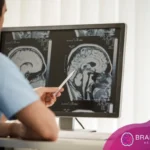Are you or a loved one struggling with the aftermath of a traumatic brain injury (TBI)? It’s an unexpected twist that can shatter our sense of safety and alter our futures in an instant.
As a dedicated support center for TBI victims, we’ve seen how life can change dramatically. That bright vision of a perfect future can suddenly dissolve into a challenging reality.
However, this blog is not about dwelling on the negative; it’s about inspiring hope and resilience. We aim to motivate TBI victims and their families, showing that TBI rehabilitation offers a path to reclaiming and rebuilding your dreams.
Keep reading to learn how to turn this challenging chapter after an accident into a story of recovery and growth.
Understanding A TBI And How It Affects The Body
A Traumatic Brain Injury (TBI) is an injury caused by a traumatic event, such as a car accident, a slip, or a blow to the head. The severity of this injury can range into three different divisions:
- Mild TBI Injury: The patient lost consciousness for 15 min or less, and can suffer a minor concussion.
- Moderate TBI Injury: The victim lost consciousness for 15 mins to 2 hours and the concussion suffered can be severe.
- Severe TBI Injury: The patient lost consciousness for 6 hours or longer. This kind of TBI can lead the patient into a coma or a vegetative state and can stay like this for months even years, or in catastrophic events, wrongful death.
To understand a TBI injury, it’s important to understand the different parts of the brain and how they function. The brain is made up of several areas, each responsible for different functions such as movement, sensation, memory, and emotion. When a TBI occurs, the symptoms can affect the human body in various ways, and symptoms can be physical, cognitive, and emotional changes.
What Complications Require TBI Rehabilitation?
The consequences of a TBI injury can be wide-ranging and include both immediate and long-term effects. Some of the possible complications and problems as a result of a traumatic brain injury include:
Aneurysm
A severe head injury can cause bulging or weakening in the wall of a blood vessel in the brain. This can lead to a rupture and bleeding in the brain which can be life-threatening. This kind of problem can cause stroke, brain damage, and even death.
Anoxia
Lack of oxygen to the brain can lead to brain damage and can be fatal if not treated immediately. In some cases, this problem can result in a brain tumor.
Cerebral Atrophy
This is a severe brain injury that causes the brain to shrink or atrophy, which can lead to problems with memory, language, and other cognitive abilities.
Edema
A traumatic brain injury can cause swelling in the brain, which can increase pressure on the brain and lead to additional brain damage.
Encephalitis
Inflammation of the brain can cause fever, confusion, and other causes.
Hematoma
Bleeding in the brain can occur if a blood vessel is damaged and blood collects in the area. It can be life-threatening if not treated immediately.
Aphasia
Severe head injury can cause difficulty with language, speaking, understanding speech, reading, and writing, This problem is known as aphasia.
Paralysis
Damage to the part of the brain that controls movement can lead to paralysis on one or both sides of the body.
Vision and hearing problems
If the part of the brain that controls these abilities is hurt, this can lead to a vision problem, a hearing problem, or both.
Epilepsy
This severe head injury is characterized by seizures and can occur immediately after the injury or may develop later on.
Depression, anxiety, and other emotional issues
A TBI can cause emotional changes like anxiety, depression, irritability, and emotional instability, which can affect the quality of life and social interactions.
The effects of a TBI can vary greatly depending on the severity of the injury and the area of the brain affected. Some victims can experience few or no long-term effects, while others may develop significant disabilities.
If you or someone you love has been affected by a TBI, it is important to seek help and start the appropriate medical treatment.
How Can A TBI Victim Recover?
Rehabilitation for TBI victims can be a long-term and slow process. Treatment goals may vary depending on the brain-injured individuals and the severity of the injury.
Some important TBI rehabilitation goals are:
Regaining physical abilities
This can include physical therapy to help the victim gain strength, coordination, and balance. Occupational therapy may also be used to help the person regain the ability to perform daily living activities such as getting dressed, eating, and grooming. Aquatics therapy with the help of physical therapists can help brain-injured individuals to motivate themselves and regain strength.
Improving cognitive abilities
Speech and speech therapy helps the person improve memory, attention, and problem-solving skills. This can be known as neurorehabilitation (cognitive recovery).
Managing symptoms
Medical treatment and medication may be prescribed to manage symptoms such as headaches, seizures, depression, and anxiety.
Improving emotional and psychological well-being
This may include counseling and therapy to help the person cope with the emotional and psychological effects of the injury. This can be more helpful with speech therapy.
Returning to daily activities
The goal is to help patients with brain injury return to work, school, or other activities that they enjoy and help them to have their daily lives back as independent people. Physical therapy is an important key to this.
Improving social interactions
Help the injured person improve their social interactions with family and friends, and get involved in activities that they can enjoy.
It is important to note that brain injury rehabilitation takes time and some victims may recover fully while others may have permanent disabilities. This is not a negative statement, because at the Brain Injury Help Center, we believe every victim has his process and can transform this fatal accident into a challenging experience that can help them to be a better and renewed version of themselves.
What Activities Are Good For A TBI Victim?
Besides the medical treatment that persons with brain injuries may need to aid TBI rehabilitation, there are some other beneficial activities to recovering, such as:
- Knitting and crafts improve fine motor skills, coordination, and relaxation.
- Reading and writing enhance language abilities and cognitive skills.
- Listening to music improves mood and emotional well-being.
- Brain training games and apps like GoCognitive support memory and reflexes.
- Gardening promotes relaxation.
- Cooking, exercise, yoga, or meditation offer additional beneficial options.
These activities can help the rehabilitation of TBI victims but it is important to keep in mind that some may not be suitable for all TBI patients. Therefore, it is important to consult with brain injury treatment experts to identify activities that are appropriate for the individual patient and create a brain injury rehabilitation program.
Get The Help You Need
Having a trustworthy circle of support can be crucial for persons with brain injuries in the recovery process. Family members, friends, caregivers, social workers, inpatient rehabilitation nurses, and medical professionals play crucial roles in motivating and supporting victims during their rehabilitation programs.
At the Brain Injury Help Center, we are a care team that believes every TBI victim in California can have a new opportunity to get their life back and improve their health. We are dedicated to improving their lives by providing critical support and resources that can help our clients and their families with brain injury recovery and help them regain physical, emotional, and cognitive functioning.
We are a compassionate and dedicated multidisciplinary team that offers specialized treatment plans, rehabilitation services, funding rehabilitation research initiatives, legal help for victims’ fair compensation, and access to community resources. We work tirelessly to ensure that those impacted by a TBI can lead healthy and fulfilling lives.
If you or a loved one are suffering from a traumatic brain injury after being in an accident that wasn’t your fault, get in touch with the Brain Injury Help Center. We are here to help you 24/7. Call us! Free consultation.









